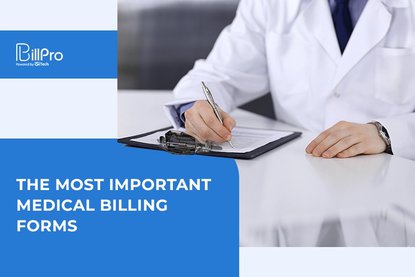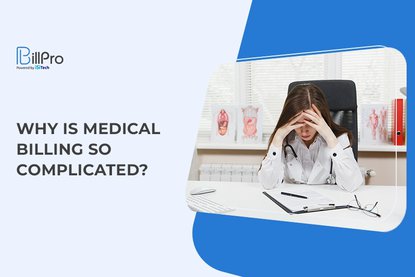Medical billing and coding are essential components of the healthcare industry, playing a vital role in the financial stability and overall efficiency of healthcare institutions. Medical coders and billers ensure that all parties involved in patient treatment and billing are accurately and efficiently processed. This article aims to shed light on the field of medical billing and coding and explain the benefits and importance of these professions.
The healthcare industry has many stakeholders, including insurance companies, medical professionals, billing companies, and other medical supplies and service providers. An important sector that is often underrated is medical and billing coding professionals.
Medical coding translates patient and medical information into a coded language that healthcare facilities, insurance companies, and billing companies understand. Within this system, all disparate parties can efficiently process and track payments and ensure that all service providers and stakeholders receive what they are owed.
Accurate medical coding has become even more important in recent years because of the Affordable Care Act (ACA). Coders and billers use this special language to assess how much insurers need to pay providers and, more importantly, what kind of services patients can receive.
What is Medical Billing?
Medical billing is the process of creating healthcare claims, which are submitted to insurance companies to pay for medical services.
This service can be outsourced to third-party billing companies or done by a separate department within a healthcare institution.
What is Medical Coding?
The American Academy of Professional Coders (AAPC) defines medical coding as using universal medical alphanumeric codes to translate health diagnoses, procedures, equipment, and other medical services for research and billing purposes.
Billing companies use medical coding to process payments and claims.
The Importance of Medical Coding and Billing
Services for medical billing and coding are crucial in diagnosing, treating, and billing patients. Highly trained coders interpret medical notes from physicians and technicians and use the correct codes to generate bills.
Down the line, medical billers process healthcare payments and ensure that the correct amounts come in from insurers and patients. They provide itemized lists of all treatments and procedures received by the patient and ensure healthcare facilities are paid on time for their services.
This robust system and teams of skilled billers and coders make sure that all patients under special programs and insurance policies are covered and paid for by their providers.
Researchers also use this code system to track patient data and study treatment and disease trends.
The Benefits of Medical Coding
.webp)
Medical coding plays a crucial role in maintaining the financial stability and overall efficiency of healthcare institutions.
Here are some of its most important benefits:
Reduced Administrative Burden
Medical billing takes a lot of time and requires a high level of accuracy. This is a heavy administrative burden for healthcare facilities—often one they cannot manage on their own.
Third-party medical billing companies like NYBillPro reduce this strain on their resources. They specialize in these services and have the expertise and technology to manage all medical billing procedures and management. This allows healthcare facilities to focus on patient treatment and diagnoses.
Increased Revenue
Proper medical billing ensures that all bills sent out are accurate and timely. Medical billers take care of the entire revenue cycle management on behalf of the healthcare provider. They can also address errors and leaks to ensure correct cash flow.
Outsourcing services to a medical biller can also improve revenue flow, as they submit and process claims quickly. Their accuracy also ensures that denied or delayed claims are less likely to occur.
Increased Efficiency
Medical coding and billing businesses also have expertise in complex coding systems, insurance policies, and medical regulations and guidelines. Their services improve the system's overall efficiency, allowing for more claims to be processed within a shorter period.
Access to the Latest Technology
Technology is constantly changing, and billing software also continues to evolve. Professional billing companies must keep their systems up-to-date to ensure accuracy and efficiency. Medical coding can also change, so billers have to keep up with the latest developments in the industry.
These days, artificial intelligence (AI) and machine learning have become helpful tools in automating medical coding. Technology has enhanced the speed and accuracy of the process and has enabled many companies and facilities to save on overhead costs.
How to Learn Medical Billing and Coding
A career in medical billing and coding requires training to meet certification requirements. Look for a program that offers a comprehensive curriculum and covers all the topics you need to learn about. If they offer training opportunities, it ensures that you gain hands-on experience in the field.
Research the Field
Learn everything you can about the medical billing industry before you choose a training or course. Do some research on current trends and specific job duties for the position you want to pursue. Know what you are getting into, so you can be sure it is the right career path for you.
Enroll in a Quality Medical Billing and Coding Program
Next, find and enroll in a quality program. You can pursue an associate degree or postsecondary certificate in medical coding.
Certifications in medical billing or coding focus on certain niches. They are also affordable and could be completed within a few weeks, depending on the program or specialization of your choice.
Associate degrees cover subjects that focus on data analytics, health policies, legal compliance, project management, and healthcare administration. They can take up to two years to complete.
Medical Background and Experience
Having some experience in the medical industry and knowledge of human anatomy and related terminology could give you an edge when studying medical billing and coding.
If you have previously worked for a healthcare provider, knowing how billing and insurance claims work is an advantage once you start training in billing.
How to Get Certified in Medical Billing and Coding

For those who want to get into medical billing and coding, it promises a promising and fulfilling career. But how does one become a medical coder and join a medical billing company?
Let’s explore the best ways to learn medical billing and coding and start a rewarding career in this field.
Have a Clear Understanding of Medical Billing and Coding
Starting a career in medical billing requires a deep understanding of the medical codes used in the billing process, but this is rewarding since you can start your own medical billing business later.
There are five types of medical coding classifications:
-
International Classification of Diseases 11 (ICD-11)
-
International Classification of Diseases 10 Clinical Modifications (ICD-10-CM)
-
International Classification of Diseases 10 Procedure Coding System (ICD-10-PCS)
-
Current Procedural Terminology (CPT)
-
Healthcare Common Procedure Coding System Level II (HCPCS Level II)
Medical coders review medical records and assign the codes for each diagnosis and procedure. Billers will then submit the claims based on these codes, and the payment process will begin.
Know the Types of Coding and Billing Certifications
The AAPC and the American Health Information Management Association (AHIMA) offer certifications for those who want a career in this field. You need to know where you want to specialize and how much time you can dedicate to the course.
These are the basic certifications each organization offers:
-
AAPC
-
Certified Professional Coder (CPC)
-
Certified Outpatient Coder (COC)
-
-
AHIMA
-
Certified Coding Associate (CCA)
-
Certified Coding Specialist (CCS)
-
Know the Eligibility Criteria
Certain requirements must be met to be a certified billing and coding professional. Each certification has different requirements, but often they require a high school diploma or a General Educational Development (GED) certificate. You must also complete a medical billing and coding program or course, which usually lasts two years.
Some online medical billing courses last four to six weeks, while other programs can last from 4 to 15 months.
Some courses also require a deep understanding of medical concepts. For example, the AAPC requires those pursuing a CPC certificate to know the following:
-
Medical services (management, pathology, radiology, evaluation, medicine, etc.)
-
Human physiology, medical terminology, and anatomy
-
Coding guidelines and regulations
You need to choose the right certification that meets your career goals and fits your background and current skills.
Preparing for the Certification Exam
Preparing for a certification exam involves more than reviewing medical codes and billing guidelines. You can take a training course and special programs if you don’t have the medical background or knowledge some organizations require.
You could then apply for membership into the AAPC and schedule your exam. Often the exam training courses simulate actual examinations so you can prepare for the format and difficulty level.
Maintain Your Certification
When you have earned your certification, you need to maintain it to keep up with industry changes and updates. Medical coding and billing norms continually change, so your certification requires 36 continuing education units (CEUs) every two years.
Medical and Billing Coding is a Promising Career
Medical billing and coding are essential services that facilitate patient care and financial stability in the healthcare industry. These professions require specialized skills and knowledge, which can be obtained through training programs and certifications. Medical coders and billers play a crucial role in the healthcare industry, ensuring the efficient processing of patient information, billing, and payments. As the healthcare industry continues to evolve, medical billing and coding will remain crucial components of healthcare operations.
As a final note, it's important to mention the benefits of using medical billing software to streamline and automate the billing process. BillPro is a medical billing software, which can help healthcare providers to reduce the amount of denied claims, improve cash flow, and save time and resources. By automating the billing process, providers can focus on delivering high-quality patient care, while ensuring they receive timely and accurate reimbursement for their services. Overall, medical billing software like BillPro can be an excellent investment for healthcare providers looking to optimize their revenue cycle management

 3/5 (2 votes)
3/5 (2 votes)
 378 views
378 views



